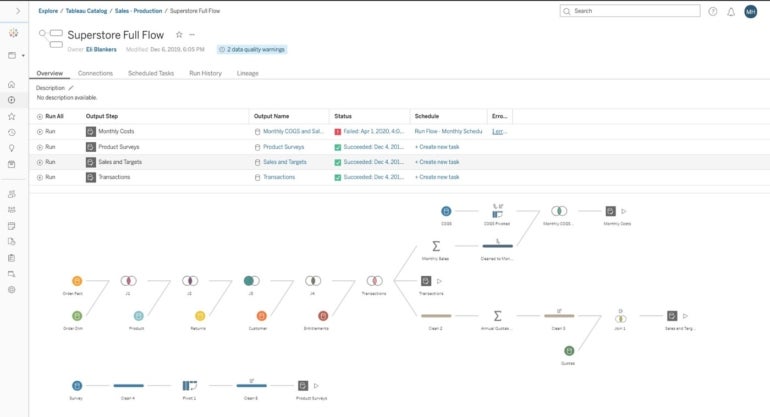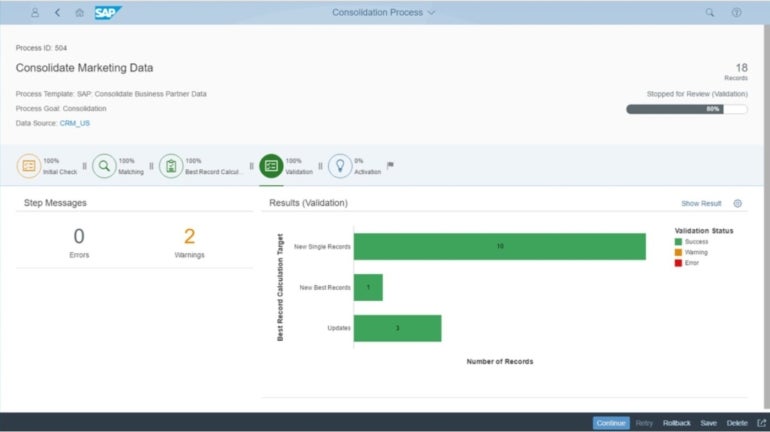Data governance is necessary in e-commerce as it ensures that decisions are based on quality data while simultaneously managing risk and upholding compliance standards.
Data governance serves as the backbone for businesses to manage and utilize data effectively. It begins with the inventory and classification of available data, guided by automated and intelligent data governance tools. Once data is organized, policies are created to manage its usage, and data stewards are appointed as subject-matter experts.
In the realm of e-commerce, data governance takes on added significance. High-quality data is not just a requirement but a critical asset for making timely and accurate decisions. Moreover, with e-commerce platforms capturing sensitive consumer data, governance becomes crucial for ensuring compliance and security.
Jump to:
How data governance works in e-commerce
E-commerce businesses collect data from many sources, including web analytics, email and marketing tools, online transactions, surveys and more. This information is consolidated and consumed by relevant stakeholders. Correctly implemented data governance initiatives ensure these stakeholders have access to data and that the data is of high quality (Figure A).
Figure A

Governing and integrating these data sources in e-commerce means teams can generate actionable insights on customers, trends, products, regions and more. These insights have a huge part to play in:
- Informing gaps to adapt to consumer and market trends.
- More effective customer retention and engagement.
- Optimization of pricing, inventory and labor allocations.
- Informing innovation as well as new and untapped market opportunities.
SEE: For a broader picture of the workings of data governance, read our guide on how data governance works.
Why is data governance important for e-commerce companies?
E-commerce businesses that lack a clear data governance strategy open themselves up to challenges like data breaches and regulatory fines, which can ultimately result in loss of customer trust. Business growth and brand reputation can also take a hit. As a result, the importance of data governance should not be understated in e-commerce.
Improving visibility, relevance and consistency
Digital outlets and advanced customer journeys have led to an influx of diverse data for e-commerce companies. This data, ranging from customer purchases to inventory, needs seamless updating across multiple platforms. However, the responsibility often falls on various teams, risking the introduction of data silos and obsolete data.
An efficient and unified data governance system helps e-commerce companies efficiently manage such distributed data (Figure B). Such a system guarantees that data remains relevant and consistent across platforms and prevents data silos. This gives these companies greater visibility to escalate their operations.
Figure B

Limiting data exposure
Data should seamlessly circulate throughout the ecosystem of stakeholders in e-commerce and retail. While unrestricted data flow can improve workflow efficiency by preventing data silos, its circulation may pose safety and security concerns. However, the flip side is that security breaches involving sensitive customer data often destroy relationships between customers and brands.
SEE: Check out this IT staff systems and data access policy from TechRepublic Premium.
What data governance systems give e-commerce brands are security features such as two-factor authentication, data encryption and tokenization to limit access to sensitive data.
Dealing with data inconsistencies
The data repositories and warehouses kept by e-commerce companies may suffer from data inconsistencies. A change in one repository means that all the other repositories need to be updated to reflect the same change, which may become complex and overwhelming over time.
Inconsistent data impacts sales, revenues, productivity and overall strategy. However, a robust data governance system takes advantage of data pipelines to help curate, modify and thoroughly validate raw data. E-commerce businesses resultantly enjoy better data visualization and easier, faster and more accurate data analysis.
What are the benefits of data governance for e-commerce?
While the importance of data governance focuses on the necessity and the challenges it solves, the benefits point to the positive impacts and the value it adds to e-commerce businesses. Data governance frameworks benefit e-commerce businesses in areas like:
- Overall performance: Data governance enhances efficiency, enabling teams to quickly find accurate data and generate insights.
- Data quality: Consistent tracking of data quality metrics provides visibility into team and stakeholder data usage.
- Better business insights: E-commerce businesses can identify weak performance areas, gain a competitive edge and discover new revenue streams.
- Improved decision-making: High-quality data under proper controls facilitates quick and accurate decision-making while maintaining privacy and compliance.
- Data ownership, responsibility and accountability: Data governance establishes clear ownership and accountability, guiding e-commerce teams on who to consult for data-related issues.
Employing data governance in e-commerce
Data governance is proving to be a necessary component of e-commerce. Correctly implementing a robust data governance solution will position e-commerce companies for new opportunities, greater security and customer confidence, more sales and e-commerce growth.
Employing data governance best practices will allow e-commerce businesses to understand how to establish and maintain data governance and position themselves for growth.
SEE: Explore our data governance overview to learn more.
Source of Article



